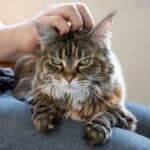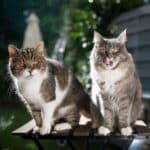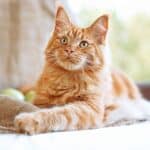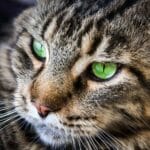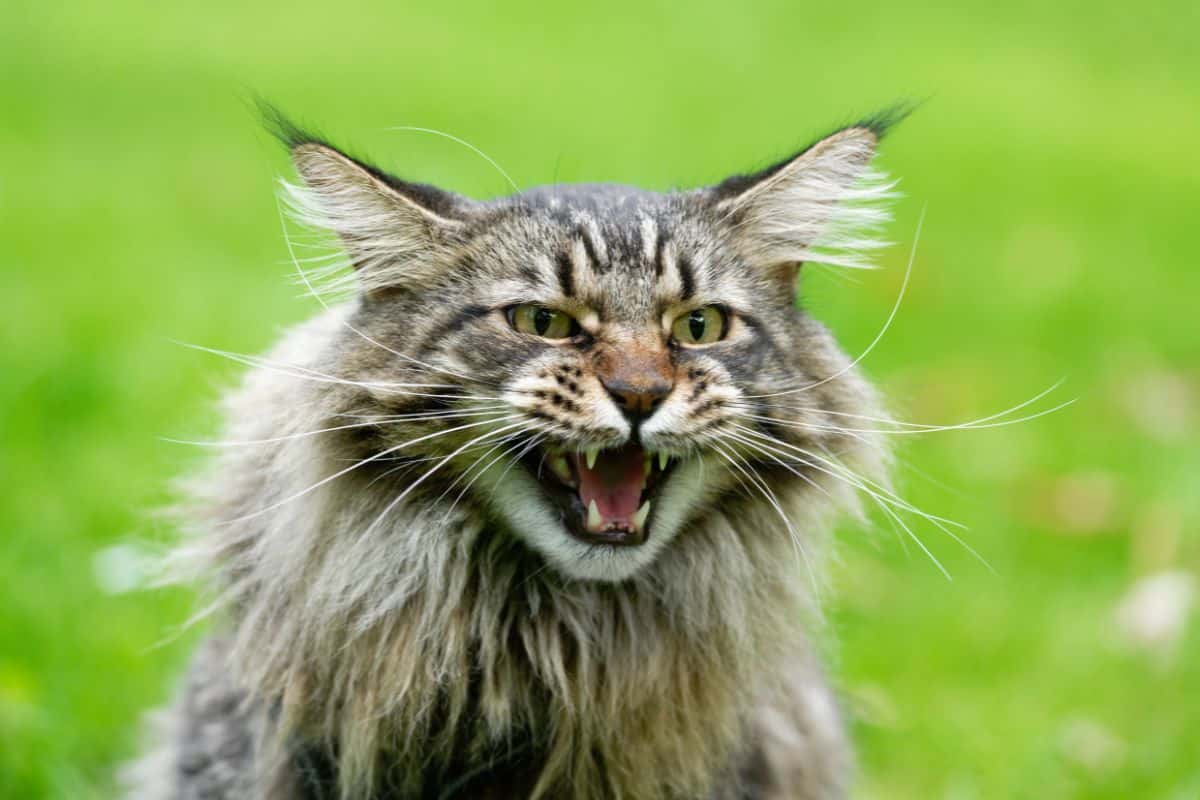
Hisses, purrs, and meows are cats’ most distinctive sounds. However, your cat may sometimes produce a violent sound known as growling. Cats’ growls resemble those of dogs, but occasionally they become more of a hiss.
Has your cat been growling more often, and you wish to figure out why? We will discuss why Maine Coon growl and solutions to the behavior.
Jump to:
1. Asserting Dominance
Maine Coons are highly possessive creatures. They have an innate inclination to safeguard the resources within their turf. That’s why they don’t usually welcome new guests with open arms.
Growling is a natural response for cats when they feel threatened by another animal or human. Your cat might be using a growl to assert his dominance. Even when two cats have a strong bond, they will still behave this way.
One cat in a pair will always act as the alpha, and the other will always obey orders. When that’s the case, the dominant cat growls to remind the submissive cat of his place in the relationship.
2. Anxiety and Fear
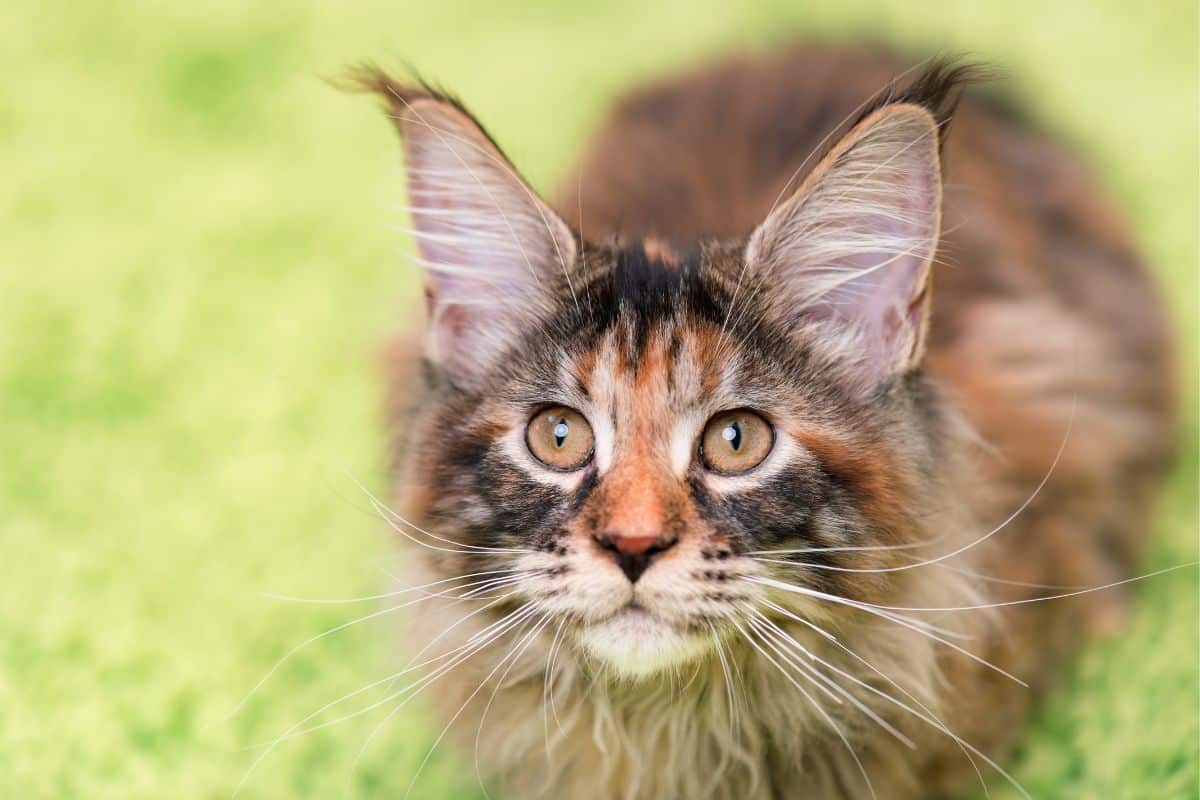
Suppose your cat has zero socialization or had a negative experience with a human when they were younger. In that case, they might react defensively by growling when placed in social situations where they cannot leave or flee.
Cats have a strong aversion to having their routines or environs disrupted. They may be good at adjusting to new situations but don’t like it when things shift.
Having your feline friend in strange settings, such as a veterinary clinic or daycare center, or bringing a new pet into the house might cause your cat to react fearfully and anxiously, leading to aggressive behavior such as growling at the caretaker or another cat.
A highly nervous cat may view physical contact with people as unpleasant rather than rewarding. Therefore, encounters with such cats need the intervention of a competent behaviorist who can keep it as brief as possible to prevent further fear progression.
3. Cat Growling When Touched
Looking at contexts in which humans respond negatively can shed light on why cats growl. When you’re preparing for work in the morning, and somebody starts scolding you, you will probably react with a growling sound, much like a Maine Coon.
Growling is typically an indication of irritation, meaning your cat is upset about something happening around them. Among the most common triggers for a growl from a cat is an aggressive approach from a stranger.
If your Maine Coon is making this noise and showing other signs, such as bristling fur and an upright tail, it’s a surefire indication that he’s furious about something. It usually means he’s preparing to attack, so you should avoid petting or touching him.
Since a Maine Coon growl is a warning, you need to stop what you’re doing and give your irritable friend room to breathe or relax.
Here is a quick rundown of what to do if your Maine Coon growls at you:
- Don’t attempt to pet or reprimand your cat.
- Don’t confine your cat inside a tiny space. Instead, provide him with plenty of room to roam.
- Keep your distance from a growling cat because he may bite if you persist.
- Allow him private space from you and other pets in the house.
4. Pain
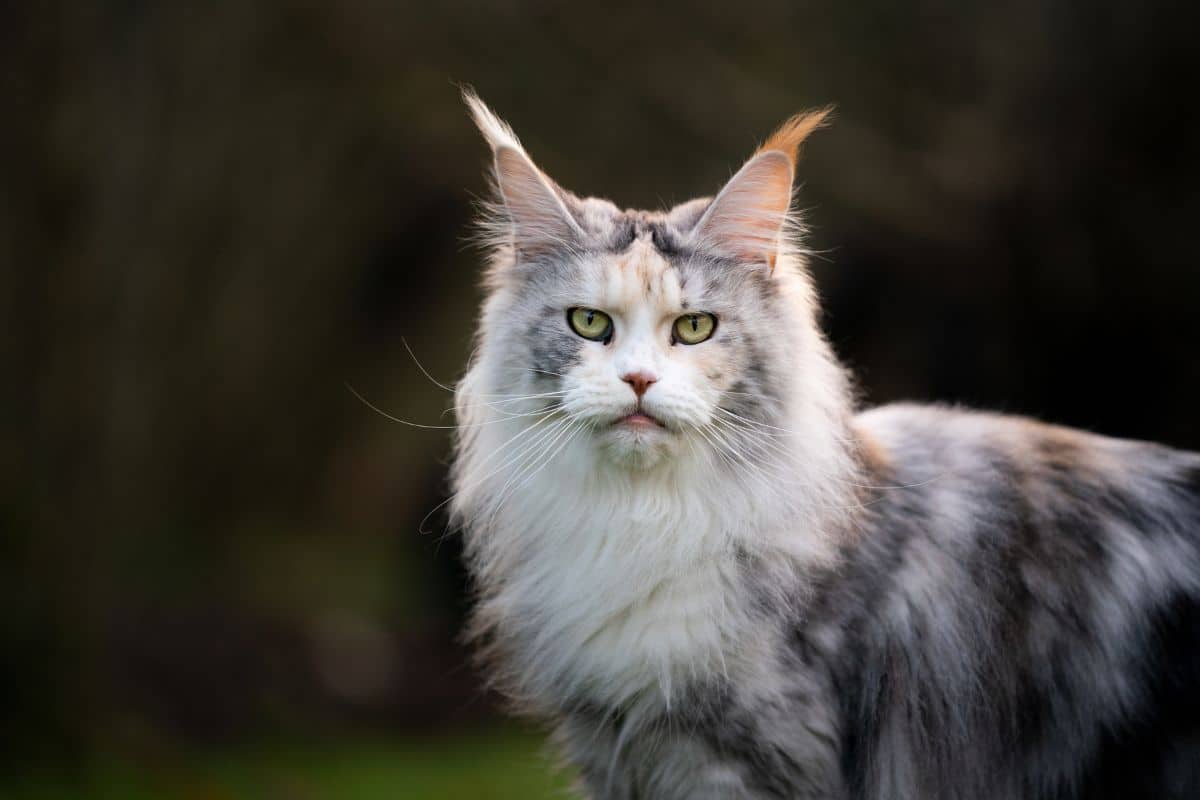
When you get close to a Maine Coon in pain, it may produce a growling sound. Cats’ pain may result from various medical conditions such as urinary tract infections and certain metabolic illnesses like hyperthyroidism.
Similarly, your cat will grunt if you try to pet it in a painful spot. However, growling can be a lifesaver for a cat in some circumstances, as it prompts its owner to take the feline to the vet for further medical examination. The likelihood that your pet has a physical problem increases in proportion to the frequency with which it growls for no apparent reason.
It would be best if you were extra vigilant to notice early pain symptoms in your cat. Being in such a condition increases their fear of being attacked by a predator. Thus, they have a well-deserved reputation for being adept at concealing signs of illness. Growling might be the only means of your cat letting you know that they’re in pain.
5. Guarding Food
Maine Coons tend to growl as they eat to discourage intruders from trying to take their food. While the exact cause of this behavior in these cats is unclear, it frequently occurs when they eat high-value foods such as treats and fresh meat.
If you live in a house with more than one cat, you can reduce tension by ensuring each cat has enough food and water and keeping meals separate from one another.
6. Frustration
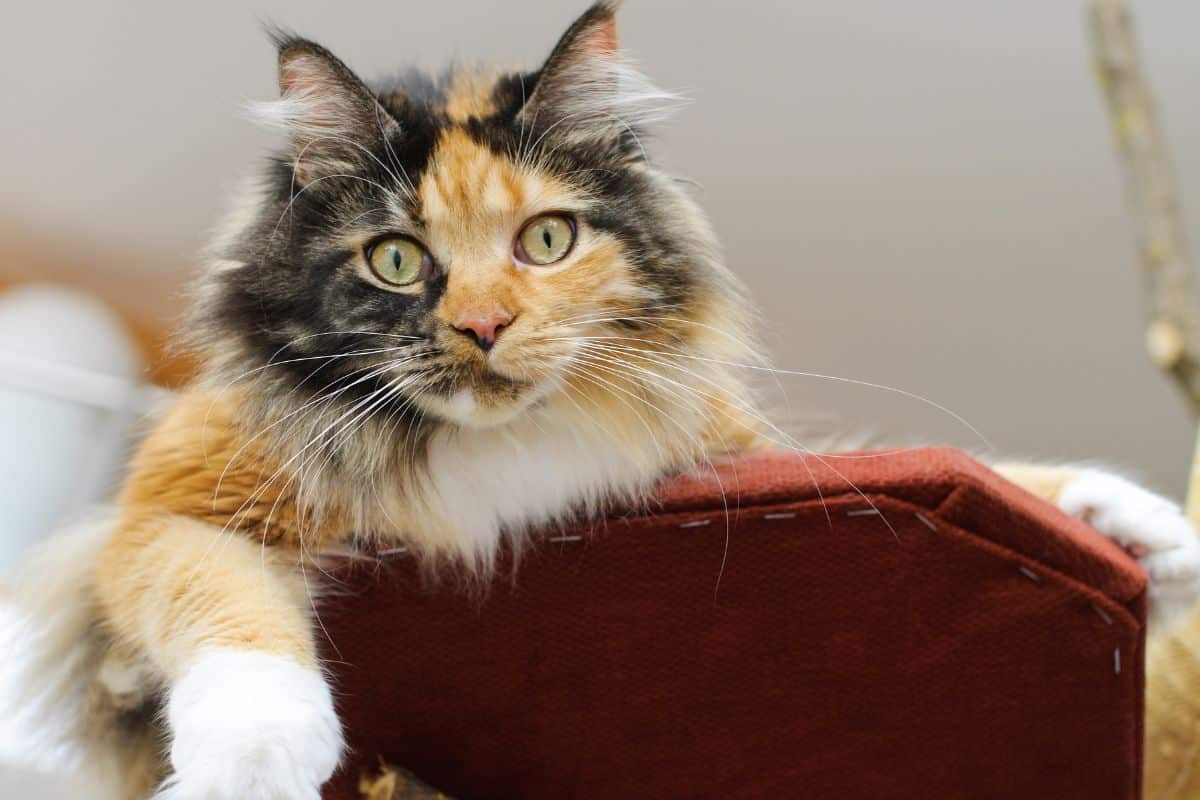
Frustration can induce growling in Maine Coons. Cats get agitated when they fail to get what they want right away or cannot defend their territory. For instance, an indoor cat spots another cat in the yard or outside the window.
You should create a consistent routine and offer cognitive stimulation to help your Maine Coon feel more secure, reducing frustration-induced aggressiveness.
7. Intrusion From Other Cats
Most Maine Coons in colonies get along famously. Nevertheless, invaders, not members of the colony, are usually met with hostility in the form of antagonistic vocalization such as growling and hissing.
It may take some time before a cat tolerates the presence of a new pet in the household because they are uncomfortable when they encounter strange creatures. Thus, it is vital to first adequately introduce two cats before letting them interact directly with one another.
Final Thoughts
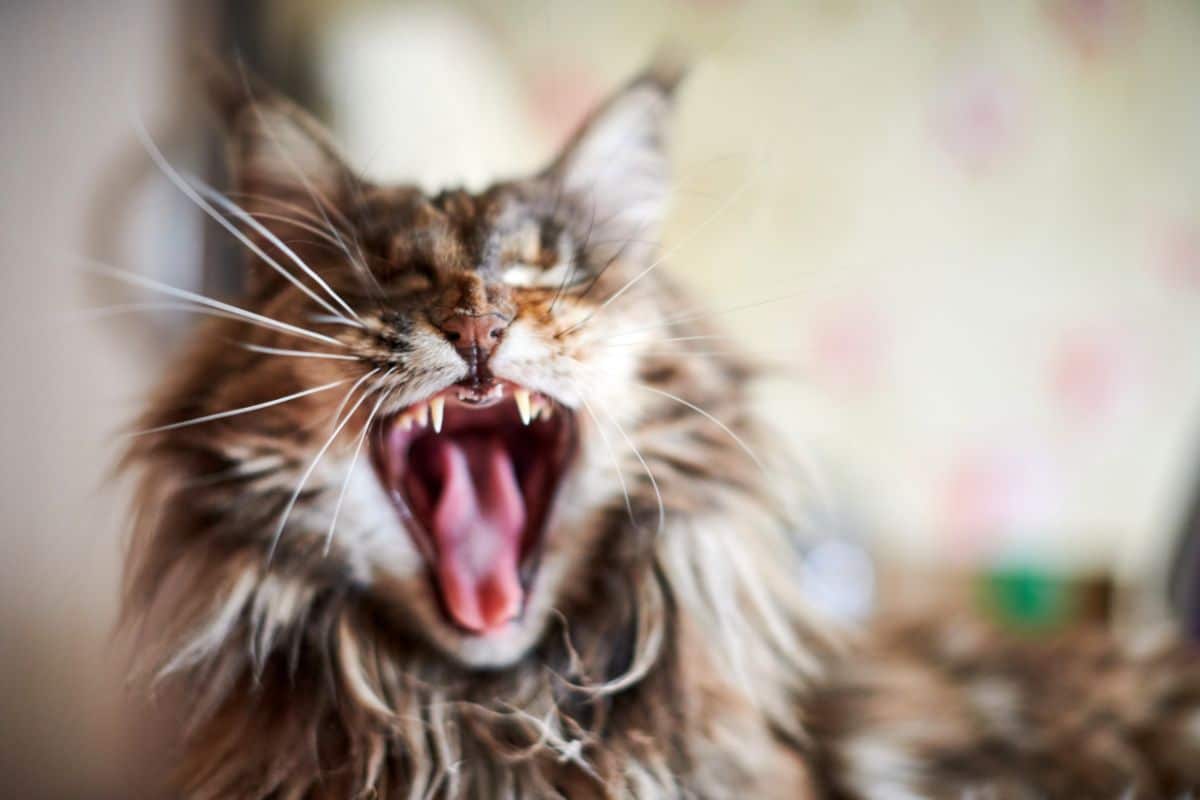
When your cat growls at you, it warns you to stay away. However, several other causes of a cat’s growling include the animal’s territorial nature and desire for personal space. Your Maine Coon may also be having underlying injuries.
It’s advisable to take your cat to the vet if there aren’t other pets in the space and no apparent causes of worry or fear.

